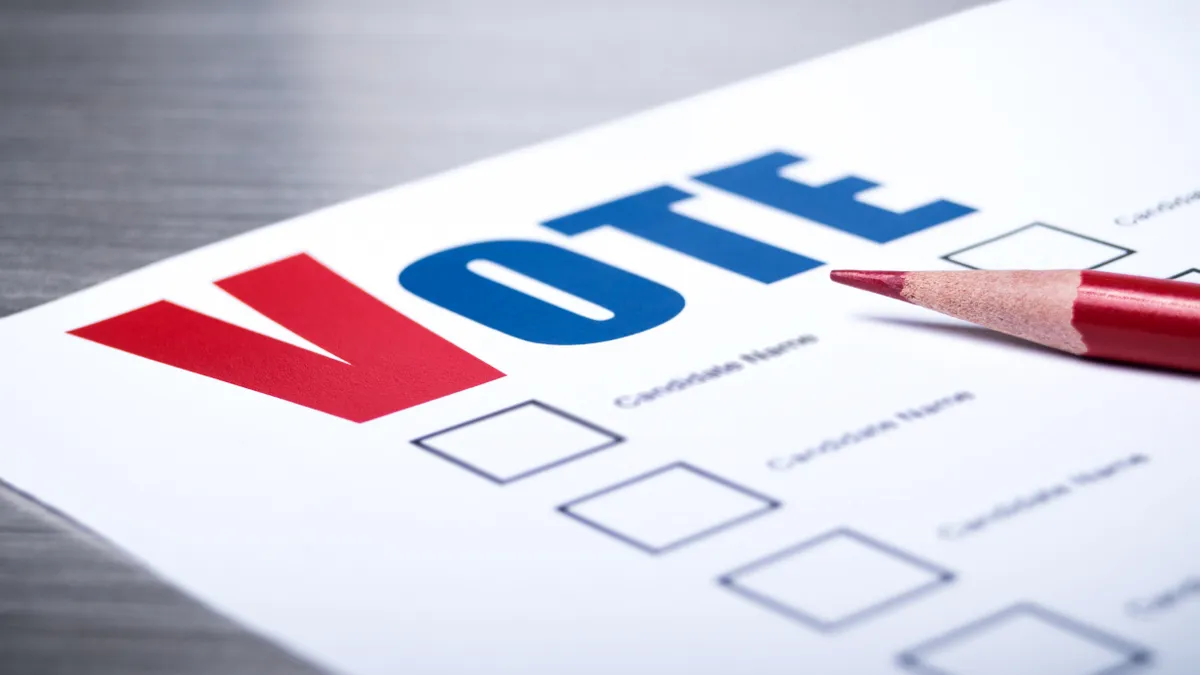Dive Brief:
- A new O.C. Tanner study found a connection between allowing workers time off to vote and providing them the flexibility that can bolster their well-being and engagement in the workplace.
- After more than 1,000 workers were polled, 62% said their employers give them flexibility to go vote during work hours, but just 34% said their employers give them a specified amount of paid time off to vote, such as two hours. Also, the survey results showed that more salaried workers (69%) got paid time off to vote than hourly workers (53%).
- Survey results compared the engagement and well-being levels of those in workplaces that dispensed paid time off for work and those that didn't. Among the results, 72% of respondents in voting-friendly workplaces said their job offers the flexibility to balance their work and personal lives, compared to 56% of those who aren't given time during the workday to vote. More than 70% of respondents said they support their organizations' values, compared with 55% who aren't given time during the workday to vote. And 65% said they would recommend their organization as a good place to work, compared to just 47% who aren't given time during the workday to vote.
Dive Insight:
Employers have seen the benefit of giving workers flexible work schedules so they can better handle both work and personal responsibilities and even, in this case, civic duties. With the workweek having been extended from 40 to 47 hours, according to a 2014 Gallup poll, workers are struggling to find time for non-work commitments. A Robert Half survey released in August showed that employees who are able to achieve work-life balance are more loyal and productive than other employees.
ElectionDay.org, a non-partisan Vote.org project, works with employers to allow workers to do their civic duty by voting. In August, more than 140 organizations have signed on to give workers time off to go to the polls. Employees within these organizations can cast their votes in the mid-year elections on Tuesday, Nov. 6, without the fear of taking time off or trying to find time around their work schedules and personal duties.
By allowing citizens to vote during the workday, employers can further their brands as good corporate citizens. Studies have shown that workers, especially millennials, favor employers who are involved in communities, causes and philanthropic activities through corporate social responsibility initiatives.













